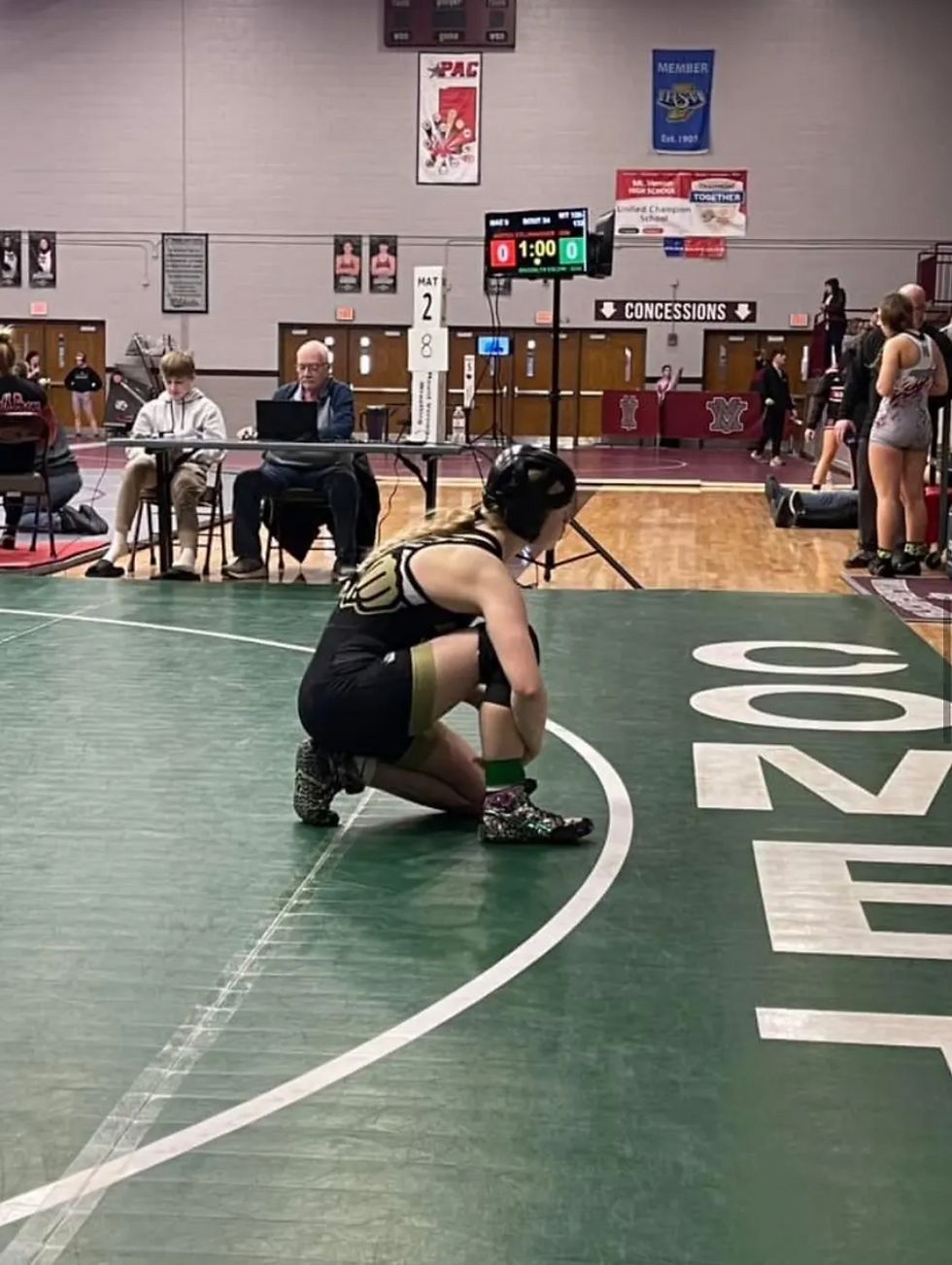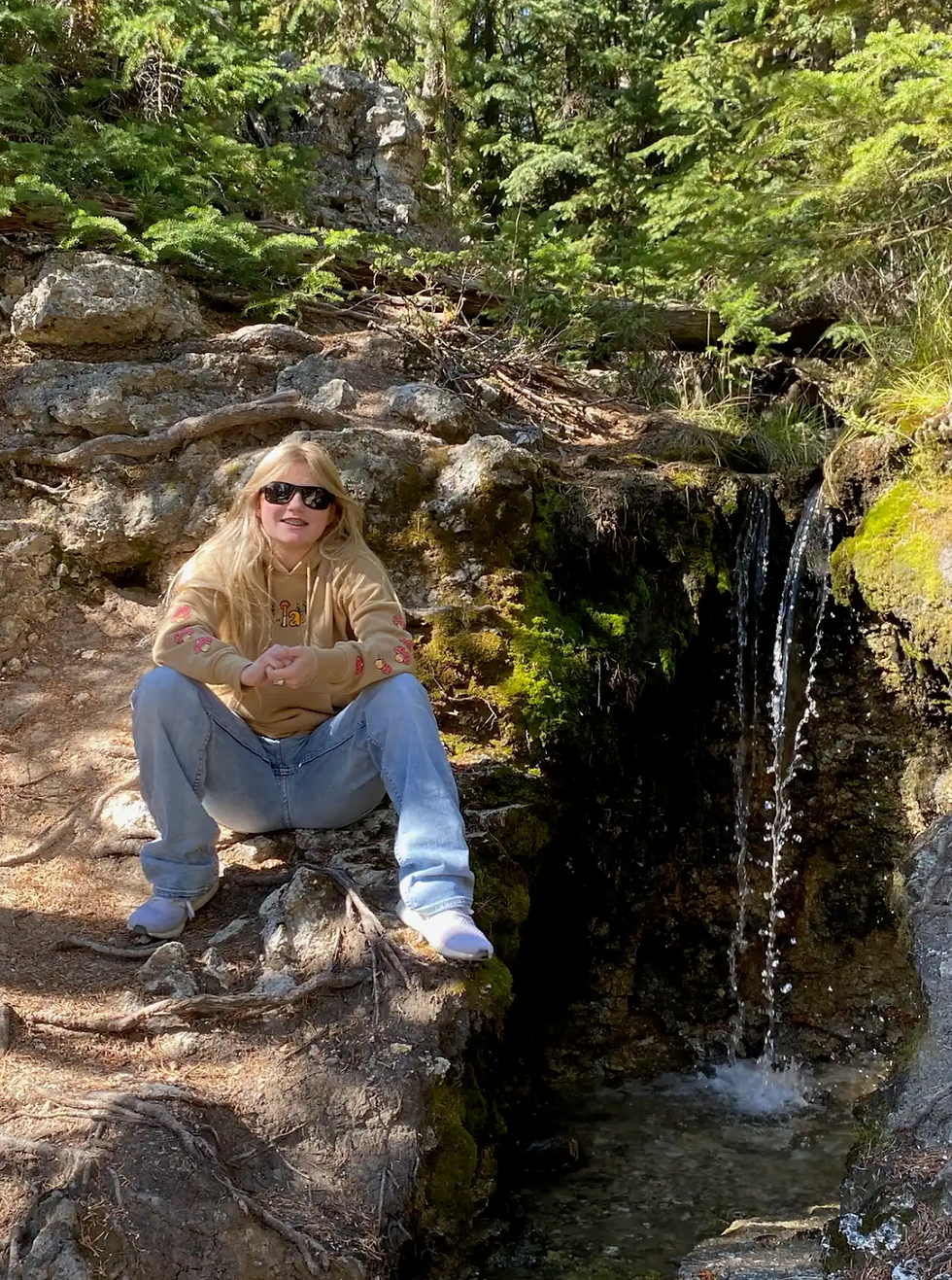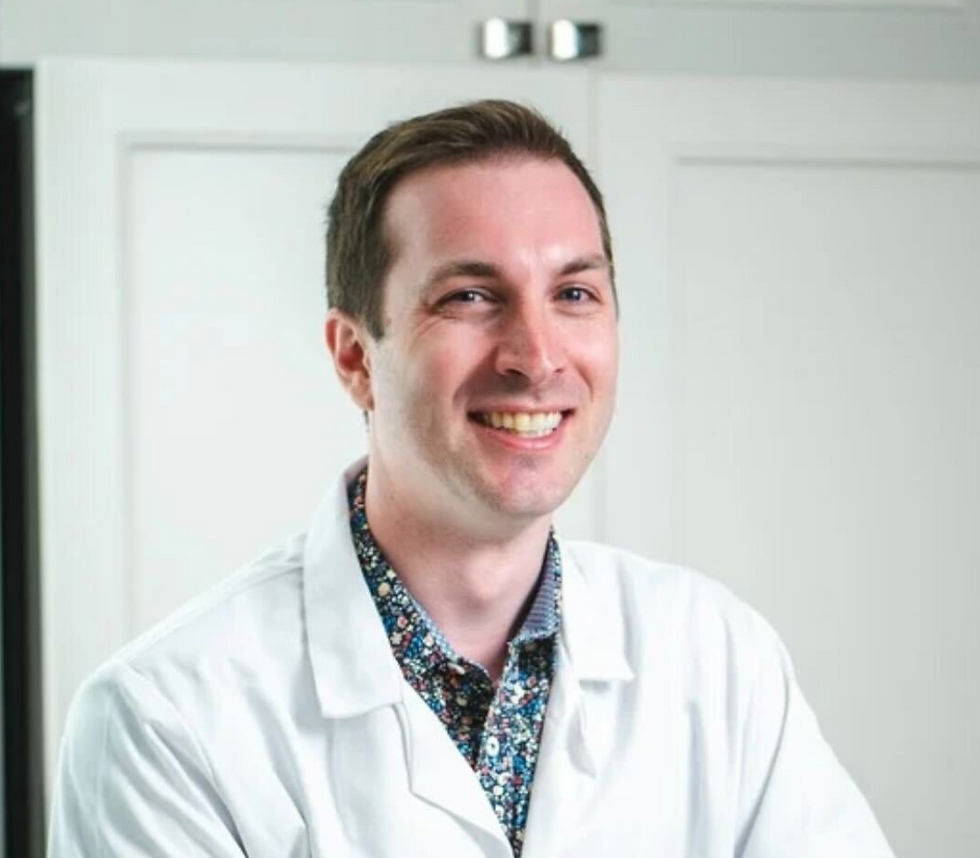Still on the Mat: Brooklyn Enlow’s Fight for Awareness After Second Impact Syndrome
- Voices of Brain Injury
- Jul 24, 2025
- 4 min read

Tina Yang: Could you introduce yourself?
Brooklyn Enlow: My name is Brooklyn Enlow. I'm a 16-year-old wrestler out of Henryville, Indiana. This past school season was my first time ever wrestling—I used to play basketball, but I decided to give wrestling a try. I instantly fell in love. It was one of the greatest decisions I've ever made.
But I ended up getting a concussion in practice, which was just a freak accident. Accidents happen. I went back eight days later to wrestle in a tournament, and I ended up getting another concussion. That led to second impact syndrome. I took two months off, as the doctors told me to, and then I came back—and got two more concussions. They were about two weeks apart.
Tina: Wow. I am sorry to hear that. Our interview department is actually doing a project right now interviewing female ice hockey players at the University of Victoria on concussions. It’s such an important important topic. Tell us more about your story. Which parts feel most important for you to share?
Brooklyn: I like talking about the second impact syndrome the most, because it’s rare and very dangerous.
Second impact syndrome happens when you have a concussion, and then get another blow to the head—it doesn’t even have to be enough to cause another concussion. That second hit causes your brain to swell. You might not even know you have it, and it can just kill you. I’m so lucky—thankfully, I had a heart rate monitor on. They saw my heart rate spike and got me to the doctor in time. I’m really grateful.
Tina: So it was eight days between the first concussion and your return?
Brooklyn: Yeah. And honestly, the doctors didn’t even approve it—I didn’t see a doctor. I took maybe two or three days off and just went back. I didn’t know it was that serious. I had no idea what second impact syndrome even was.
Tina: After the second concussion, you went to the hospital. Please describe that experience.
Brooklyn: I don’t remember much. That’s been my biggest symptom—memory loss. I didn’t know where I was, who I was, who my mom was, who my coaches were. I was just completely out of it.
Tina: What symptoms did you develop after the later concussions?
Brooklyn: After my fourth concussion, I developed this twitch in my shoulder. It’s kind of like a tick or Tourette’s. They say it’s a muscle spasm caused by brain trauma. I didn’t even know that was possible, but apparently multiple TBIs can do that.
Tina: Is your memory still affected?
Brooklyn: Yes. I can remember important stuff now, but small things—like if I start doing something and get distracted—I’ll completely forget what I was doing. It happens to everyone, I think, but it’s worse for me. Everything before my first concussion is really foggy. I don’t remember much of my childhood or early wrestling.
Tina: Did you have to relearn how to wrestle or play basketball?
Brooklyn: Not really. It wasn’t muscle memory that I lost—it was more actual memories and events.
Tina: Please tell us more about the third and fourth concussions?
Brooklyn: Both happened at wrestling tournaments. They were mild. I’m just thankful they weren’t serious. There were about two weeks between them, which is better than just one week. After the fourth one, I took about three to four months off to focus on healing.
Tina: What did recovery look like for you?
Brooklyn: I did brain therapy, neck strengthening, and monitored my heart rate during workouts. I stayed off screens and kept my room dark. I did small stuff—like Rubik’s cubes. It helped with focus and frustration tolerance. After a TBI, your irritability skyrockets, so learning patience is important.
Tina: That’s really wise. One cheerleader I interviewed told me that after your first and second concussions, it becomes easier to get more. Would you agree?
Brooklyn: Oh yeah. 100%.
Tina: How do you manage your expectations now, given what you used to be able to do?
Brooklyn: I still wrestle—once a week now, instead of six or seven times. My doctor told me that if I get another concussion, sports might be over for me. So, I’m being smarter, drinking water, doing brain therapy, and using a special helmet. It doesn’t prevent concussions, but it reduces impact.
Tina: Can you please share more about the helmet?
Brooklyn: It’s made of this weird, bendable rubber. No padding—it’s illegal in wrestling—but it absorbs impact. It kind of bounces when dropped, so it helps reduce the force to the head.
Tina: I feel like that should be the standard for everyone. For people outside the sport, wrestling doesn't seem like a concussion-heavy sport, but maybe it’s under-reported.
Brooklyn: It is. It happens all the time, even mild ones. And it doesn’t get talked about because it’s a full-contact sport. People just say, ‘Well, you chose to wrestle,’ but concussions can change your life. That should be taken more seriously.
Tina: I’m so impressed that you still wrestle. What keeps you coming back?
Brooklyn: After second impact syndrome, everyone expected me to quit, but I love wrestling. I felt like if I gave it up, I’d be giving up a part of myself. Even after the third and fourth concussions, I kept being drawn back to it. I didn’t want to give up.
Tina:That’s powerful. What advice would you give—either to your younger self or to others dealing with TBIs?
Brooklyn: I’d say be mindful. I couldn’t tell my younger self not to wrestle—she wouldn’t listen. But I’d say to think about the consequences. Everyone jumps in so fast, especially after injuries, but you have to really consider what can happen. Don’t assume you’re invincible.
And for other TBI survivors: share your story. We still don’t know enough about TBIs. If you can contribute to the conversation, that’s doing something meaningful.
Tina: Out of curiosity, how did you find Voices of Brain Injury?
Brooklyn: On Instagram! I was following different pages to learn more about TBIs. I saw your page and thought it was cool, so I followed and sent an email.
Tina:
That’s so great to hear. Thank you so much for being here today.




